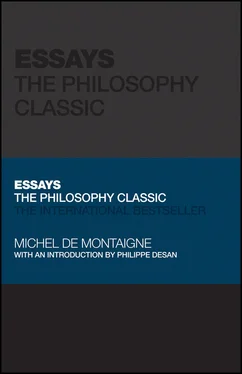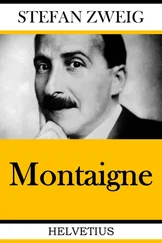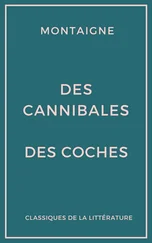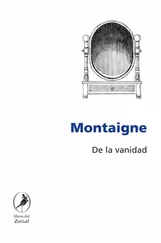Michel de Montaigne - Essays
Здесь есть возможность читать онлайн «Michel de Montaigne - Essays» — ознакомительный отрывок электронной книги совершенно бесплатно, а после прочтения отрывка купить полную версию. В некоторых случаях можно слушать аудио, скачать через торрент в формате fb2 и присутствует краткое содержание. Жанр: unrecognised, на английском языке. Описание произведения, (предисловие) а так же отзывы посетителей доступны на портале библиотеки ЛибКат.
- Название:Essays
- Автор:
- Жанр:
- Год:неизвестен
- ISBN:нет данных
- Рейтинг книги:3 / 5. Голосов: 1
-
Избранное:Добавить в избранное
- Отзывы:
-
Ваша оценка:
- 60
- 1
- 2
- 3
- 4
- 5
Essays: краткое содержание, описание и аннотация
Предлагаем к чтению аннотацию, описание, краткое содержание или предисловие (зависит от того, что написал сам автор книги «Essays»). Если вы не нашли необходимую информацию о книге — напишите в комментариях, мы постараемся отыскать её.
Essays: The Philosophy Classic
Essays: The Philosophy Classic
Essays — читать онлайн ознакомительный отрывок
Ниже представлен текст книги, разбитый по страницам. Система сохранения места последней прочитанной страницы, позволяет с удобством читать онлайн бесплатно книгу «Essays», без необходимости каждый раз заново искать на чём Вы остановились. Поставьте закладку, и сможете в любой момент перейти на страницу, на которой закончили чтение.
Интервал:
Закладка:
‘Miser, O miser,’ aiunt, ‘omnia ademit’
Una dies infesta mihi tot praemia vitae.’
[‘Wretch that I am,’ they cry, ‘one fatal day has deprived me of all joys of life.’
—Lucretius, iii. 911.]
And the builder,
Manuet opera interrupta, minaeque
Murorum ingentes.
[The works remain incomplete, the tall pinnacles of the walls unmade.
— Aeneid , iv. 88.]
A man must design nothing that will require so much time to the finishing, or, at least, with no such passionate desire to see it brought to perfection. We are born to action:
Quum moriar, medium solvar et inter opus.
[When I shall die, let it be doing that I had designed.
—Ovid, Amores , ii. 10, 36.]
I would always have a man to be doing, and, as much as in him lies, to extend and spin out the offices of life; and then let death take me planting my cabbages, indifferent to him, and still less of my gardens not being finished. I saw one die, who, at his last gasp, complained of nothing so much as that destiny was about to cut the thread of a chronicle he was then compiling, when he was gone no farther than the fifteenth or sixteenth of our kings:
Illud in his rebus non addunt: nec tibi earum
jam desiderium rerum super insidet una.
[They do not add, that dying, we have no longer a desire to possess things.
—Lucretius, iii. 913.]
We are to discharge ourselves from these vulgar and hurtful humours. To this purpose it was that men first appointed the places of sepulture adjoining the churches, and in the most frequented places of the city, to accustom, says Lycurgus, the common people, women, and children, that they should not be startled at the sight of a corpse, and to the end, that the continual spectacle of bones, graves, and funeral obsequies should put us in mind of our frail condition:
Quin etiam exhilarare viris convivia caede
Mos olim, et miscere epulis spectacular dira
Certantum ferro, saepe et super ipsa cadentum
Pocula, respersis non parco sanguine mensis.
[It was formerly the custom to enliven banquets with slaughter, and to combine with the repast the dire spectacle of men contending with the sword, the dying in many cases falling upon the cups, and covering the tables with blood.
—Silius Italicus, xi. 51.]
And as the Egyptians after their feasts were wont to present the company with a great image of death, by one that cried out to them, “Drink and be merry, for such shalt thou be when thou art dead”; so it is my custom to have death not only in my imagination, but continually in my mouth. Neither is there anything of which I am so inquisitive, and delight to inform myself, as the manner of men's deaths, their words, looks, and bearing; nor any places in history I am so intent upon; and it is manifest enough, by my crowding in examples of this kind, that I have a particular fancy for that subject. If I were a writer of books, I would compile a register, with a comment, of the various deaths of men: he who should teach men to die would at the same time teach them to live. Dicarchus made one, to which he gave that title; but it was designed for another and less profitable end.
Someone may object, that the pain and terror of dying so infinitely exceed all manner of imagination, that the best fencer will be quite out of his play when it comes to the push. Let them say what they will: to premeditate is doubtless a very great advantage; and besides, is it nothing to go so far, at least, without disturbance or alteration? Moreover, Nature herself assists and encourages us: if the death be sudden and violent, we have not leisure to fear; if otherwise, I perceive that as I engage further in my disease, I naturally enter into a certain loathing and disdain of life. I find I have much more ado to digest this resolution of dying, when I am well in health, than when languishing of a fever; and by how much I have less to do with the commodities of life, by reason that I begin to lose the use and pleasure of them, by so much I look upon death with less terror. Which makes me hope, that the further I remove from the first, and the nearer I approach to the latter, I shall the more easily exchange the one for the other. And, as I have experienced in other occurrences, that, as Caesar says, things often appear greater to us at distance than near at hand, I have found, that being well, I have had maladies in much greater horror than when really afflicted with them. The vigour wherein I now am, the cheerfulness and delight wherein I now live, make the contrary estate appear in so great a disproportion to my present condition, that, by imagination, I magnify those inconveniences by one-half, and apprehend them to be much more troublesome, than I find them really to be, when they lie the most heavy upon me; I hope to find death the same.
Let us but observe in the ordinary changes and declinations we daily suffer, how nature deprives us of the light and sense of our bodily decay. What remains to an old man of the vigour of his youth and better days?
Heu! senibus vitae portio quanta manet.
[Alas, to old men what portion of life remains!
—Maximian, vel Pseudo-Gallus, i. 16.]
Caesar, to an old weather-beaten soldier of his guards, who came to ask him leave that he might kill himself, taking notice of his withered body and decrepit motion, pleasantly answered, “Thou fanciest, then, that thou art yet alive.” [Seneca, Epistles , 77.] Should a man fall into this condition on the sudden, I do not think humanity capable of enduring such a change: but nature, leading us by the hand, an easy and, as it were, an insensible pace, step by step conducts us to that miserable state, and by that means makes it familiar to us, so that we are insensible of the stroke when our youth dies in us, though it be really a harder death than the final dissolution of a languishing body, than the death of old age; forasmuch as the fall is not so great from an uneasy being to none at all, as it is from a sprightly and flourishing being to one that is troublesome and painful. The body, bent and bowed, has less force to support a burden; and it is the same with the soul, and therefore it is, that we are to raise her up firm and erect against the power of this adversary. For, as it is impossible she should ever be at rest, whilst she stands in fear of it; so, if she once can assure herself, she may boast (which is a thing as it were surpassing human condition) that it is impossible that disquiet, anxiety, or fear, or any other disturbance, should inhabit or have any place in her:
Non vulnus instants Tyranni
Mentha cadi solida, neque Auster
Dux inquieti turbidus Adriae,
Nec fulminantis magna Jovis manus.
[Not the menacing look of a tyrant shakes her well-settled soul, nor turbulent Auster, the prince of the stormy Adriatic, nor yet the strong hand of thundering Jove, such a temper moves.
—Horace, Odes , iii. 3, 3.]
She is then become sovereign of all her lusts and passions, mistress of necessity, shame, poverty, and all the other injuries of fortune. Let us, therefore, as many of us as can, get this advantage; it is the true and sovereign liberty here on earth, that fortifies us wherewithal to defy violence and injustice, and to condemn prisons and chains:
In manicis et
Compedibus saevo te sub custode tenebo.
Ipse Deus, simul atque volam, me solvet. Opinor,
Hoc sentit; moriar; mors ultima linea rerum est.
[I will keep thee in fetters and chains, in custody of a savage keeper. A god will when I ask Him, set me free. This god I think is death. Death is the term of all things.
Читать дальшеИнтервал:
Закладка:
Похожие книги на «Essays»
Представляем Вашему вниманию похожие книги на «Essays» списком для выбора. Мы отобрали схожую по названию и смыслу литературу в надежде предоставить читателям больше вариантов отыскать новые, интересные, ещё непрочитанные произведения.
Обсуждение, отзывы о книге «Essays» и просто собственные мнения читателей. Оставьте ваши комментарии, напишите, что Вы думаете о произведении, его смысле или главных героях. Укажите что конкретно понравилось, а что нет, и почему Вы так считаете.












